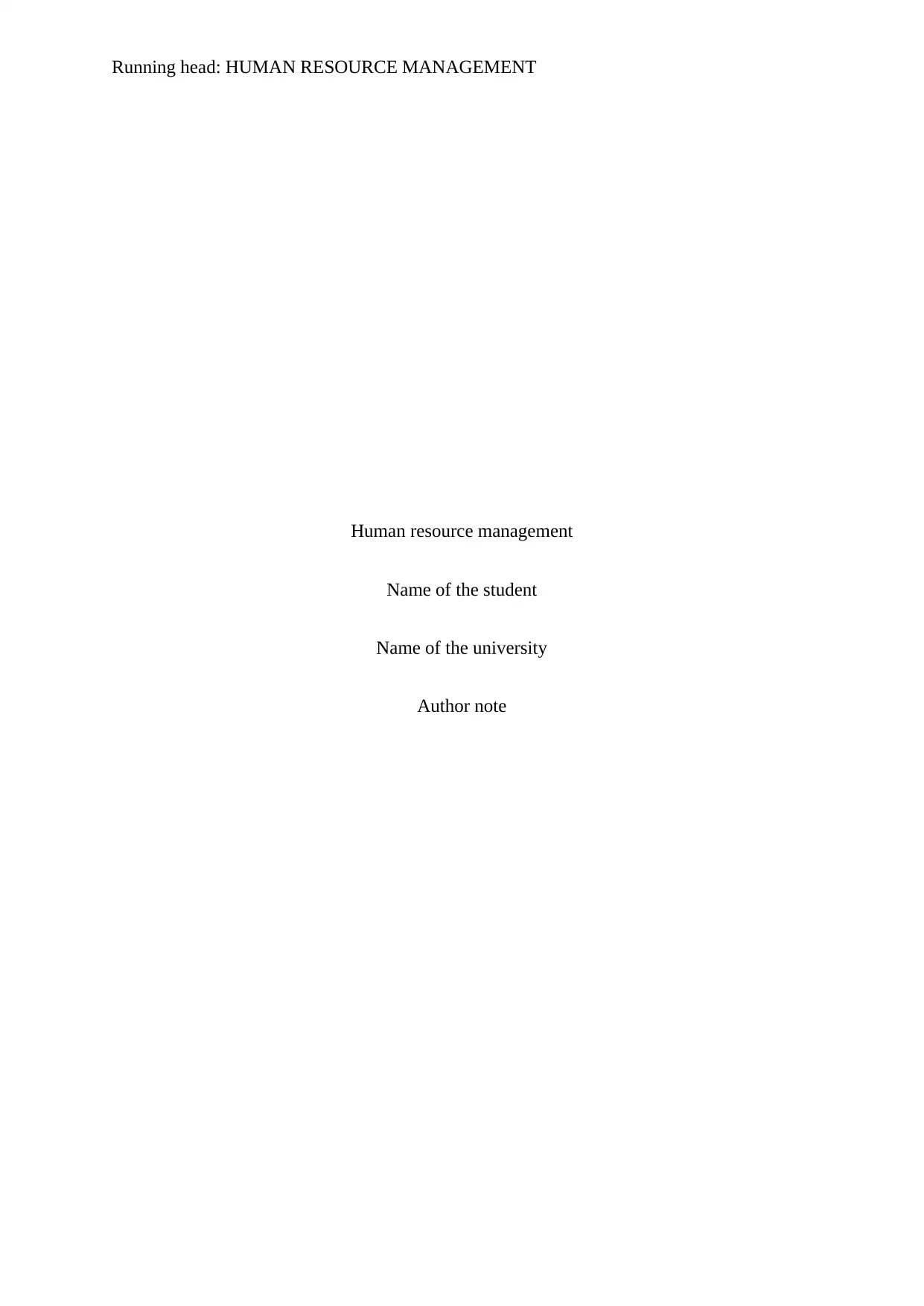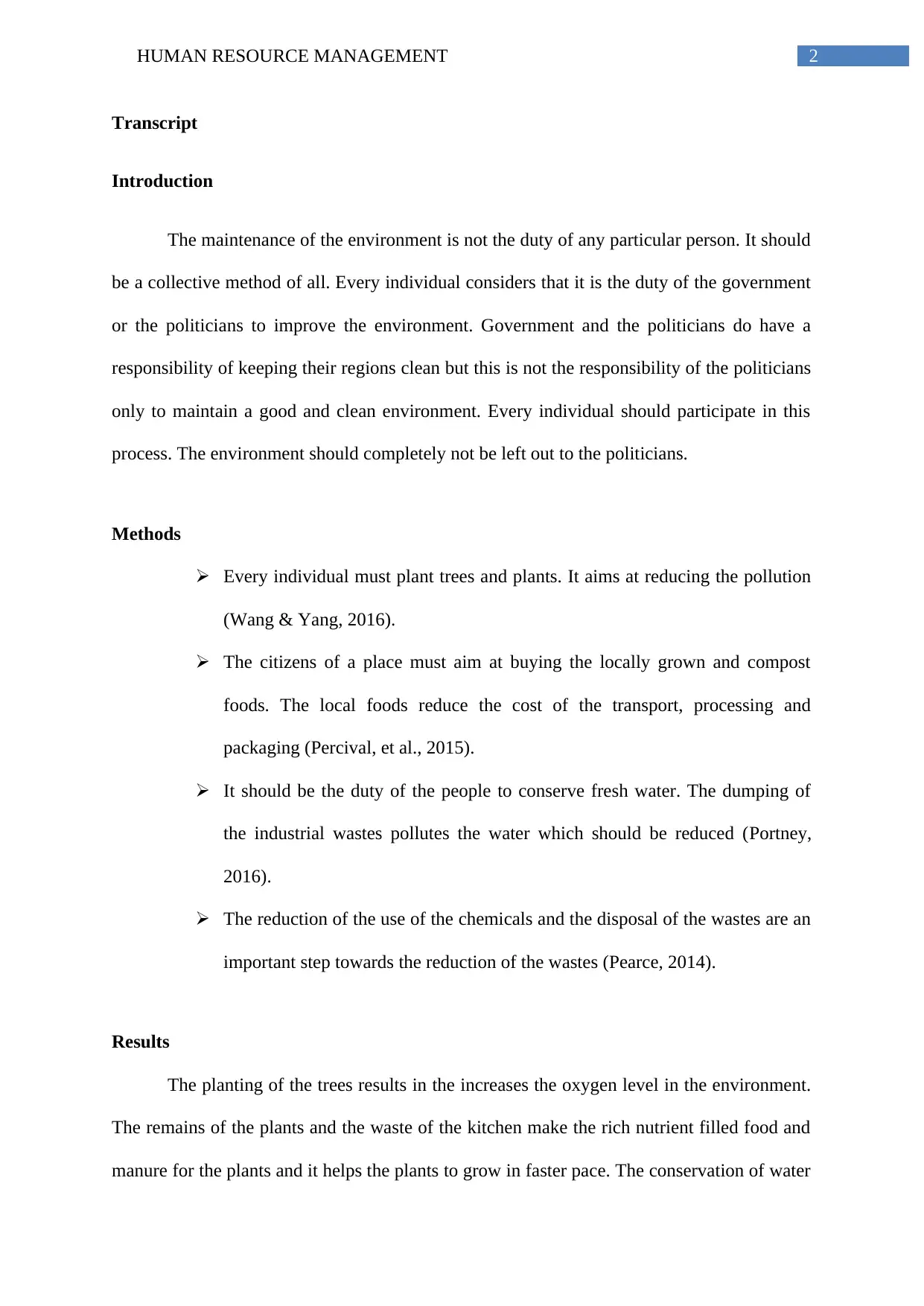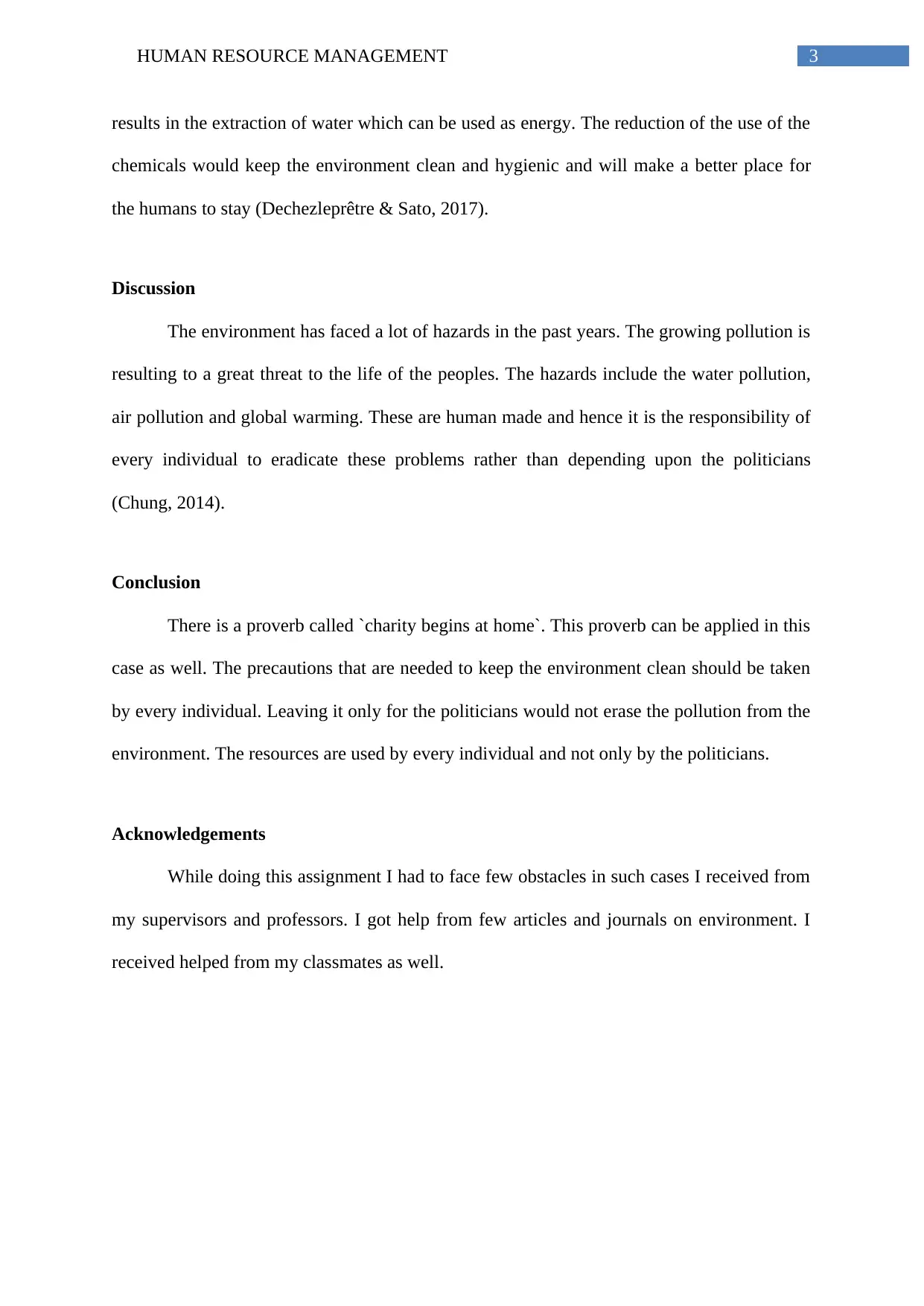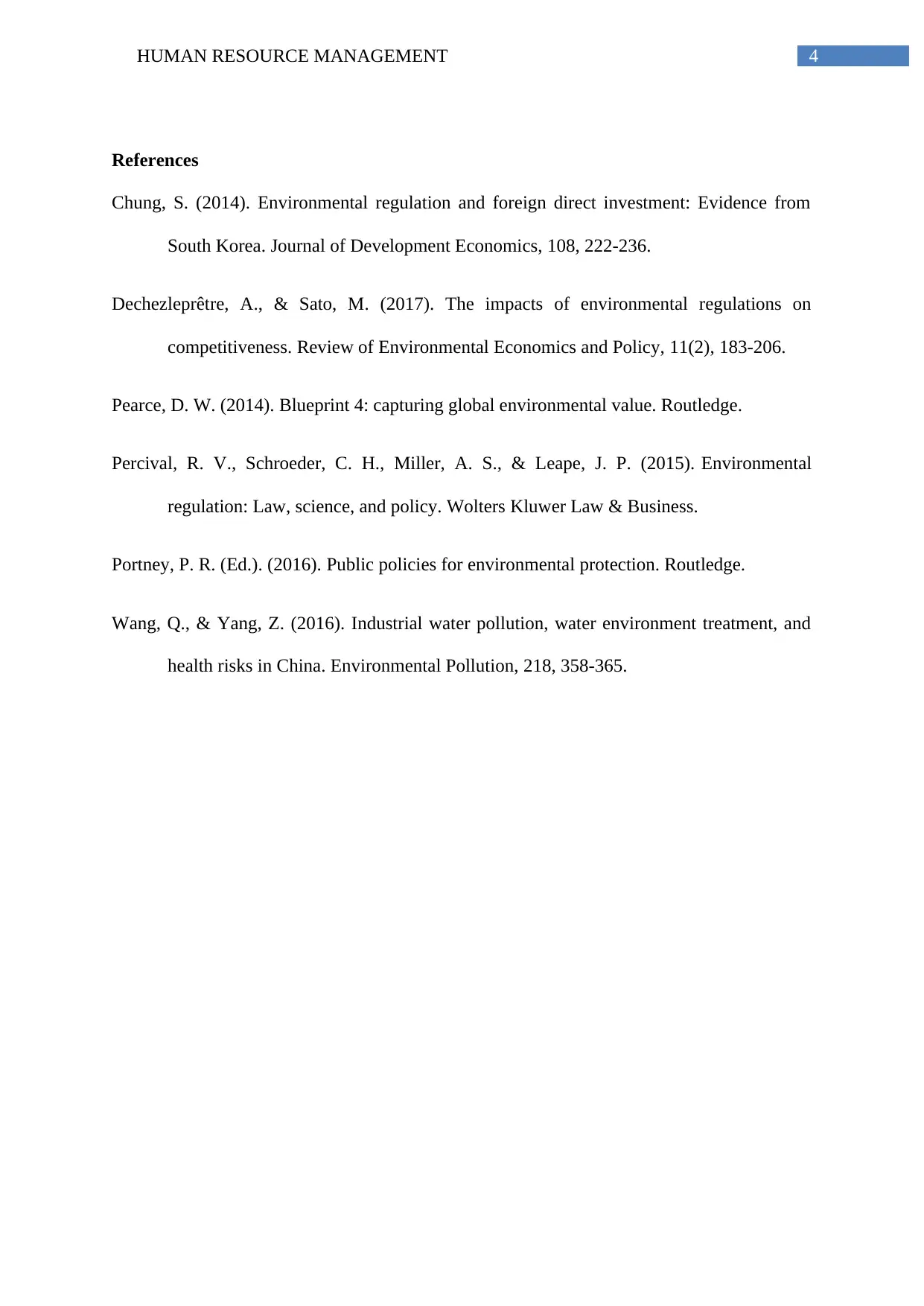Human Resource Management Report on Environmental Stewardship
VerifiedAdded on 2020/04/21
|4
|702
|58
Report
AI Summary
This report, focusing on Human Resource Management, emphasizes the collective responsibility of individuals in environmental protection, rather than solely relying on governmental or political actions. It outlines practical methods such as planting trees, purchasing local and compost foods, conserving water, and reducing chemical usage and waste disposal to mitigate pollution. The report highlights the detrimental effects of pollution, including water and air contamination and global warming, stressing the urgency for individual action. It concludes that environmental stewardship begins at a personal level, advocating for proactive measures to ensure a cleaner and healthier environment. The report acknowledges the assistance received from supervisors, professors, articles, journals, and classmates during its completion.
1 out of 4











![[object Object]](/_next/static/media/star-bottom.7253800d.svg)